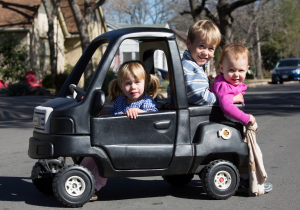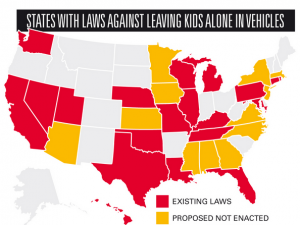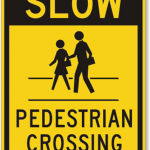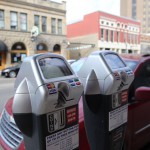Why aren’t parents buying technology that protects kids in hot cars?
Parents who forget their kids in hot cars are viewed pretty harshly by others, but the sad truth is that it can happen to even the most loving parent or caregiver.
Hot car fatalities claim an average of 38 kids per year in the US. From 1998 to 2013, 606 children in the age group of 5 days to 14 years have died due to vehicular heat strokes; 51% of them were forgotten in the cars by their caregivers. So far this year alone, 23 kids died in cars that were too hot.

Image by: Lars Plougmann
Little bodies heat up fast (3 to 5 times faster than adults’ bodies) in a car that acts like a greenhouse, and even cracking a window open does not help. When a child’s core body temperature reaches 107°F, cells die and organ shutdown begins, leading to death.
On an average 70°F summer day, the temperature inside your vehicle can soar unbelievably high, to 89°F in just 10 minutes and to 113°F – 120°F in an hour.
–Source: Parents Magazine
Besides living with lifelong grief of losing their kid, parents also suffer under the law. Nearly half of such cases reported to date resulted in charges being filed against the adults who left their kids in hot cars; 81% of those cases resulted in conviction.
Why isn’t technology helping?
Several products exist to address the problem, like the E-Z Baby Saver and devices that sense movement, but they have failed to make significant impact due to the lack of backing from big companies. These products are difficult to find, and parents often assume they won’t be a good investment. According to Fast Company, “parents strive to buy only the best for their kids and, sadly, never-heard-of, hard-to-find products from small but well-meaning crusaders and companies in corners of the United States aren’t often on that wish list.”
Denial is another reason why safety technology like this isn’t selling fast enough. Many parents live under the impression that this could never happen to them. “Most parents do not believe that they could inadvertently leave a child behind in the vehicle. Therefore, most parents would not purchase the technology because they don’t feel that it is something they need,” says Sue Auriemma, vice president of KidsAndCars.org.
David Diamond, an expert witness in overheating cases, says, “…No one is immune from making this memory error. I tell people, if you’re human and have ever forgotten anything (if you satisfy those 2 criteria), then you can forget a child in a car.”
Even in the face of such fatalities, most parents are not even aware of the danger of leaving their kids in hot cars; those who do, are ignorant of the consequences. An online survey conducted earlier this year on heat stroke awareness revealed that although 7 in 10 people have heard about the dangers of heat stroke among kids in hot cars, they still don’t mind leaving their own kids in vehicles. 14% of parents reported leaving a child aged 6 years or younger alone in a parked, locked car and 11% said that they had done so by mistake.
As many as 19 states in the US have come up with neglect laws to tackle the crisis. Florida imposes a 15-minute limit on leaving a young child in a car. In California leaving a child of six or below alone in unsafe conditions is a traffic violation.
Experts advise people to keep one of the child’s toys in the front seat as a reminder, or to keep one of their own important items (like their mobile phone or laptop bag) in the back seat. Pediatric counseling can be extremely helpful in safeguarding your child. A spouse can help track the whereabouts of the kids by calling to check whether the child reached the school or caregiver’s place on time, for example.
You can also do your part and call 911 immediately if you spot a child left alone in a vehicle.
Related Posts
Category: Miscellaneous, News


















